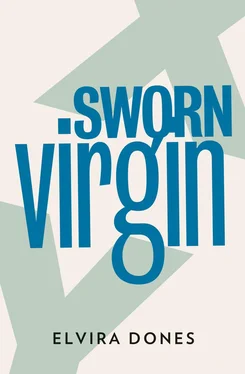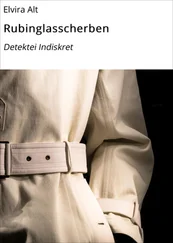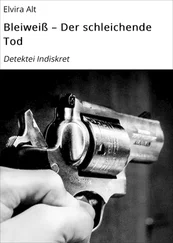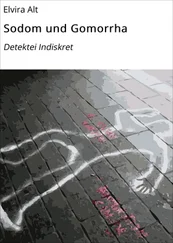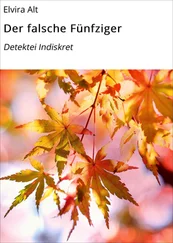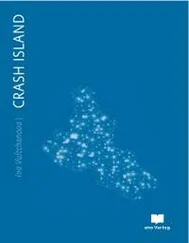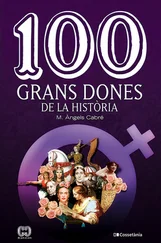Hana shakes her thoughts away. This restroom in Dulles International Airport is so real and tangible, and yet she feels so alien here. You need balls to deal with all this, she thinks, balls she doesn’t have. And that’s not all you need. Why balls? Why? Why me?
Get out of this bathroom, she tells herself. Get out of here, for Christ’s sake!
‘Do you need anything, sir?’ asks a voice to her left.
She turns around. It’s a boy of about fourteen. Or even fifteen, or sixteen.
‘Are you feeling ok?’ he persists, in an accent that sounds familiar to her.
Hana swallows, smiles, straightens up from the washbasin. Says she’s fine, thanks. Almost apologizing.
The boy looks at her, not as self-assured as before. A man — it must be his father, the resemblance is uncanny — comes out of one of the stalls, approaches his son and rests his hand on his shoulder.
‘Is everything all right, Hikmet?’
The boy’s face doesn’t look at all Turkish, or Arabic; he’s almost blond. The father, on the other hand, has a polished face but dark, marked features.
‘This man isn’t feeling well,’ says Hikmet.
Hana denies this, shaking her head, and says, ‘Hikmet? That’s a beautiful name. Turkish, right?’
The man doesn’t seem concerned that the stranger is feeling unwell.
‘How do you know?’
‘I’m Albanian.’
The man pauses a moment, granting a sliver of transient trust to the word Albanian, before doubt returns.
‘ Arnavut, ’ he says, looking for confirmation in Turkish.
‘Albanian,’ Hana repeats.
‘We live in London. I often come to the States on business and this time I brought Hikmet with me.’
She doesn’t know what to say. Her poor English paralyzes her. The boy is almost at the door.
‘So, you are feeling better,’ states the man, dropping the question mark.
Hana nods.
‘Good luck.’
‘You also.’
Father and son exit.
More time passes before she decides to face her family. She emerges from the restroom like a man on death row, like a fool in a flash of lucidity.
Arms are waving in the air; she hears a girl’s voice shout, ‘Uncle Maaaaark!’ Out of the corner of her eye she glimpses the threatening tail of a German Shepherd on a leash, held by a man in uniform. Her cousin Lila throws herself into her arms. There is much agitation.
‘Hello, cousin!’ Lila cries. ‘Here we all are. But where were you? Where were you? We thought you’d been sent back.’
‘Why would they do that?’
‘How should I know? All the passengers from Zurich came out ages ago.’
‘ Tungjatë, bre burrë .’ 2Shtjefën Dibra, Lila’s husband, greets her with an energetic embrace.
‘ Tungjatë , Shtjefën.’
‘Uncle Mark! I’m Jonida, do you recognize me?’
‘Jonida, you’re so big now!’
They order coffee, which is served in plastic cups. The coffee is sad, tasting vaguely like rainwater.
She’s had coffee like this in Scutari a couple of times, where the barmen save money on coffee grounds: one day you might get supplies from the other side of the border, from Montenegro or Kosovo, and the next day you might not. In Tirana, the capital, you can get hold of most things, but Tirana is remote and hard to think about.
Jonida pierces Hana with her look. She sucks on her orange juice, making too much noise, and is scolded by Lila.
‘Uncle Mark, now I get it,’ she says at last.
‘What?’
‘That you’re totally weird.’
‘Oh yes?’ Hana smiles. Lila shakes her head as if to say sorry. Shtjefën looks awkward.
‘Yeah, weird.’ The girl’s attack continues. ‘I mean, like, your clothes look borrowed. Nobody in America wears stuff like that. And you don’t have a beard.’
‘Jonida, shut up,’ Lila implores. ‘What are you doing? I begged you to behave yourself …’
‘If you keep busting your uncle’s balls, he’ll turn right around and go back to Albania,’ threatens Shtjefën, without much conviction.
Jonida starts laughing, shrugging her shoulders, free and stubborn. One of the relatives, Pal, belches noisily; his wife Sanìja’s cell phone rings.
‘He can’t go anywhere,’ the young girl argues. ‘And stop being such a know-it-all, Dad. How’s he going to go back with no money? The ticket costs like …’
She’s still laughing. Two amazing dimples in her cheeks. She’s beautiful, so different from the way Hana had imagined her.
‘Tell me, Uncle Mark — you don’t have the money to go back, right?’
‘That is right.’
‘And Scutari is the ugliest place in the world, right?’
‘That is also true.’
‘And half of the village has emigrated like us, right?’
‘Yes, that is true too.’
‘The north is the poorest part of Albania, right?’
‘Unfortunately.’
‘And you don’t have a beard, right?’
Sanìja gets up and moves away to finish her phone call. Lila blushes. Shtjefën is furious. Pal looks down awkwardly at his chewed nails. Cousin Nikolìn and his wife Rudina freeze to the spot.
Hana tries to change the subject. ‘So you know quite a bit about your country?’
‘The internet. Do you know what the internet is?’
‘A little, yes.’
‘But you really don’t have a beard!’
‘No, I don’t.’
The women stare blatantly, in silence. Lila smiles and murmurs words of encouragement to her cousin but avoids saying her name, though on the phone and in her letters she has always called her ‘Dear sister Hana.’
Hana feels calm now. She doesn’t mind her family; it was the limbo of expectation that made her feel sick.
‘At home I’ve made chicken pilaf and a chocolate cake,’ Lila whispers in her ear. ‘It’s typical American food,’ she adds proudly.
She expects Hana to be impressed, but Hana can only mutter, ‘Oh yes, that’s good.’
‘You’ll be sleeping in the kitchen, Uncle Mark,’ Jonida informs her. ‘So every time Dad gets up to smoke or have a snack he’ll wake you up.’
‘Yes, Shtjefën keeps strange hours. Sometimes he goes to work at three or four in the morning. It’s bad, so he can’t sleep like regular people and he gets up to smoke or eat. You know, at home things are a bit cramped — I already told you on the phone, right? But don’t you worry about a thing.’
How do I look to her? Hana wonders, stubbing out her cigarette. She observes mother and daughter; they don’t look at all alike. Lila has gained some weight, but her face is still pretty. She’s a natural blond, her eyes are a limpid blue, she’s tall and solid, her teeth are wrecked like most Albanians’. Jonida’s gaze is dark but warm, her hair long and parted down the middle, her eyebrows curved and bushy. Big mouth, straight nose and a really beautiful forehead.
‘So, Mark, why don’t we go, brother?’ Shtjefën suggests. ‘It takes over an hour to get home with the traffic the way it is, and you must be jet-lagged. And it’s almost dinner time.’
‘It’s up to you. I don’t know.’
‘Anyway, we’ll see you next Sunday for a dinner you won’t forget,’ says Pal. ‘Today was just to welcome you, now we really should …’
Under the communists, Pal was the elementary-school teacher in the village. Something in his voice has stayed nasal and pedantic. This is the first time Hana has seen Sanìja and Rudina, the cousins’ wives. Of course, they must know the whole story and be dying to fire questions at her, like rounds from a semi-automatic; but they realize that it’s not the right time or place.
Hana can’t take her eyes off Jonida. The girl winks at her.
‘Uncle Mark,’ she concludes as she gets up, ‘you’re the funniest guy I’ve ever met.’
Читать дальше
